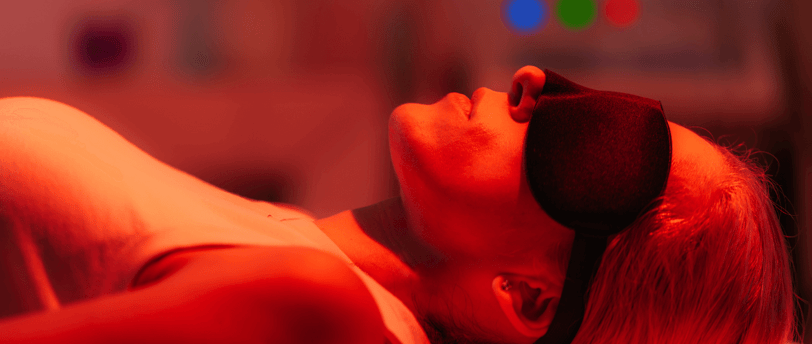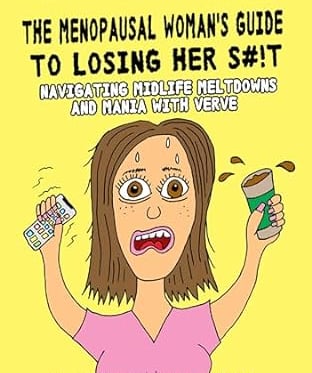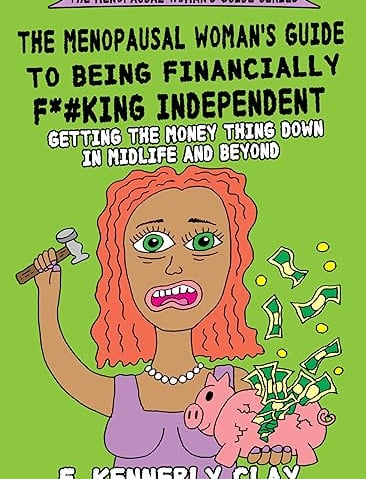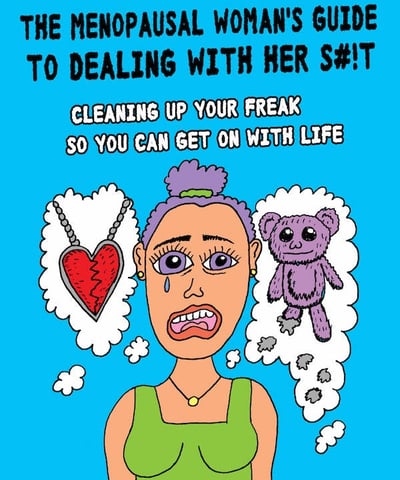Ketamine Therapy: Will It Work for Menopause Depression?
Tried everything else and wondering if ketamine therapy works for menopause depression? Hear from someone who's tried it.
MENOPAUSAL DEPRESSIONMENOPAUSAL DEPRESSION TREATMENT
Kennerly Clay
5/15/20245 min read


Does ketamine therapy work for menopause depression?
Depression in menopause. It's like the universe decided that hot flashes and mood swings weren't enough, so it threw in some misery for good measure.
Menopause and mental health concerns often arise during this transitional time. But we've got some options, and one that's been popping up as an alternative in treating menopause depression is ketamine therapy.
You may have heard of ketamine back in the day as a club drug. I used to snort the stuff on the dance floor. So yeah, it's that - but not exactly. Research has now shown that low doses of ketamine (which is a legal substance used as anesthesia in hospitals) can help treat depression. Administered under medical supervision, ketamine can quickly lift mood and alleviate symptoms of menopause depression.
My personal experience with ketamine for depression
My own experience with ketamine for depression sprang from years of living with major depressive disorder (MDD), managed with talk therapy and a cocktail of antidepressants, including Prozac, Wellbutrin and Gabapentin. Eventually, I distinguished I was dealing with a different kind of depression: existential depression, which had me wishing every day that life would end and that it was all a useless effort. This - mind you - in spite of the fact that I had a great life, a loving and supportive family and friends network, engaging work, purposeful hobbies, and good health.
I turned to ketamine therapy as a last resort, not a first one, though some people are gravitating to and favoring this type of psychedelic medicine over traditional medical approaches to menopause depression.
If you or someone you know is in crisis, please call 988, the Suicide & Crisis Lifeline in the United States.
What does the ketamine research say?
You might be wondering if there's any science to back this up. Yup! Research has shown that ketamine can be effective in treating major depressive disorder and treatment-resistant depression. While specific studies on menopause depression are still limited, the preliminary results are promising. It's not a magic bullet, but it's a solid option worth considering.
How does ketamine therapy work?
Ketamine therapy for depression in menopause may be a good option if you've experienced firsthand how traditional antidepressants can take weeks or even months to kick in. Plus, if you've ever had to work with a psych nurse to try different doses of medication and a combination of meds to manage your mood, only to get so far (is this as "good" as it gets?), you may be able to appreciate what it's like to experience relief in hours or days. With ketamine, it's almost like flipping a switch.
I found that each ketamine session built on the one before it. The at-home Mindbloom program is very intentional with music / playlist, journaling, support around "integration" (making sense of your ketamine experience), and an incremental increase in dosage. With ketamine, I was able to access the recesses of my psyche and dare I say it, my spirit, in ways that left me profoundly altered. For women grappling with the double whammy of menopause and mental health issues, this kind of quick turnaround can be a game-changer.
With ketamine, I was able to access the recesses of my psyche and dare I say it, my spirit, in ways that left me profoundly altered.
At-home ketamine for depression vs. ketamine treatment at a clinic
My own experience has been in-home only but some people may feel more comfortable getting ketamine therapy via a clinic that offers the treatment. Regardless of whether you choose in-home or clinic-based treatment, you'll be assessed by a mental health professional to determine your eligibility. Here are some pros and cons of each.
At-home ketamine therapy for depression
Pros
Convenience - You can undergo treatment in the comfort of your own home, reducing the need for travel and making it easier for those with mobility issues or busy schedules.
Privacy - Being at home allows for a more private experience, which can be appealing for those who are uncomfortable with clinical settings.
Flexibility - You have more control over the timing of your sessions, allowing you to fit therapy into your personal schedule more easily.
Cons
Safety concerns - Without medical supervision, there is a higher risk of adverse effects or complications. The lack of immediate access to healthcare professionals in case of a bad reaction is a significant drawback.
Limited monitoring - The absence of real-time monitoring can make it difficult to track how well the treatment is working or to adjust dosages effectively.
Potential for misuse - There is a risk that patients might not follow the prescribed protocol, potentially leading to misuse or overuse of the medication.
Ketamine treatment at a clinic
Pros
Medical supervision - Treatments are administered by healthcare professionals who can monitor your response and intervene immediately if any adverse effects occur.
Structured environment - The controlled setting of a clinic ensures that the treatment is delivered according to best practices, reducing the risks of improper administration.
Access to comprehensive care - Clinics often offer additional support services, such as therapy or counseling, which can enhance the overall effectiveness of the treatment.
Cons
Cost - Clinic-based treatments can be more expensive due to the need for medical staff, equipment, and facilities.
Inconvenience - You have to travel to the clinic, which can be difficult for those living in remote areas or those with busy schedules.
Less privacy - Undergoing treatment in a clinic may be less private, which could be uncomfortable for some people.
The choice between the two options depends on your individual circumstances, preferences, and the severity of your condition. Of course ketamine therapy is not for everyone. You have to do your own research and determine whether this type of treatment is for you. I found Mindbloom to be a good source, and ultimately, a good facilitator of my experience. Other people may prefer to receive ketamine infusion therapy at a qualified local provider. There's also a ketamine nasal spray option.
Potential ketamine side effects and considerations
Like any kind of medication, there are potential side effects. Some people may experience nausea or dizziness. It's possible to have hallucinations. I never had any noticeable side effects other than feeling a little bit groggy and wanting to chill out after I did my therapy.
Ketamine therapy isn't exactly cheap either, and it's not covered by most insurance plans. However, my out-of-pocket cost of $1,200 felt completely reasonable given the depths of despair I was experiencing and the fact that regular antidepressant treatment could not help me. I was on track to support the pharmaceutical industry for the rest of my life so why not try ketamine?
I also felt supported throughout my ketamine therapy journey and I'm glad I went for it. It helped me tremendously. Feel free to get in touch with me if you have additional questions about my ketamine for depression experience. I've also written extensively about what happened during each of my six in-home ketamine sessions.
Keep in mind it's not a one-size-fits-all solution, but for some women, it could be a lifesaver. As always, talk to your doctor before making any decisions. But hey, wouldn't it be nice to feel like yourself again without slogging through life hoping it will all go away? Ketamine therapy just might be the key.
Wanna talk more about ketamine for depression in menopause?
Books for women who are losing it in menopause
Mental Health
Losing your mind in peri/menopause?
The menopausal woman's guide series
Financial Health
Had enough of financial insanity?
Personal Growth
Triggers? Old stuff kicking up?
Related topics
Explore helpful articles, tips, and advice for women who are losing their shit in menopause.
Community
Stay Connected
© 2024. Eclectic Content, Inc. All rights reserved.






